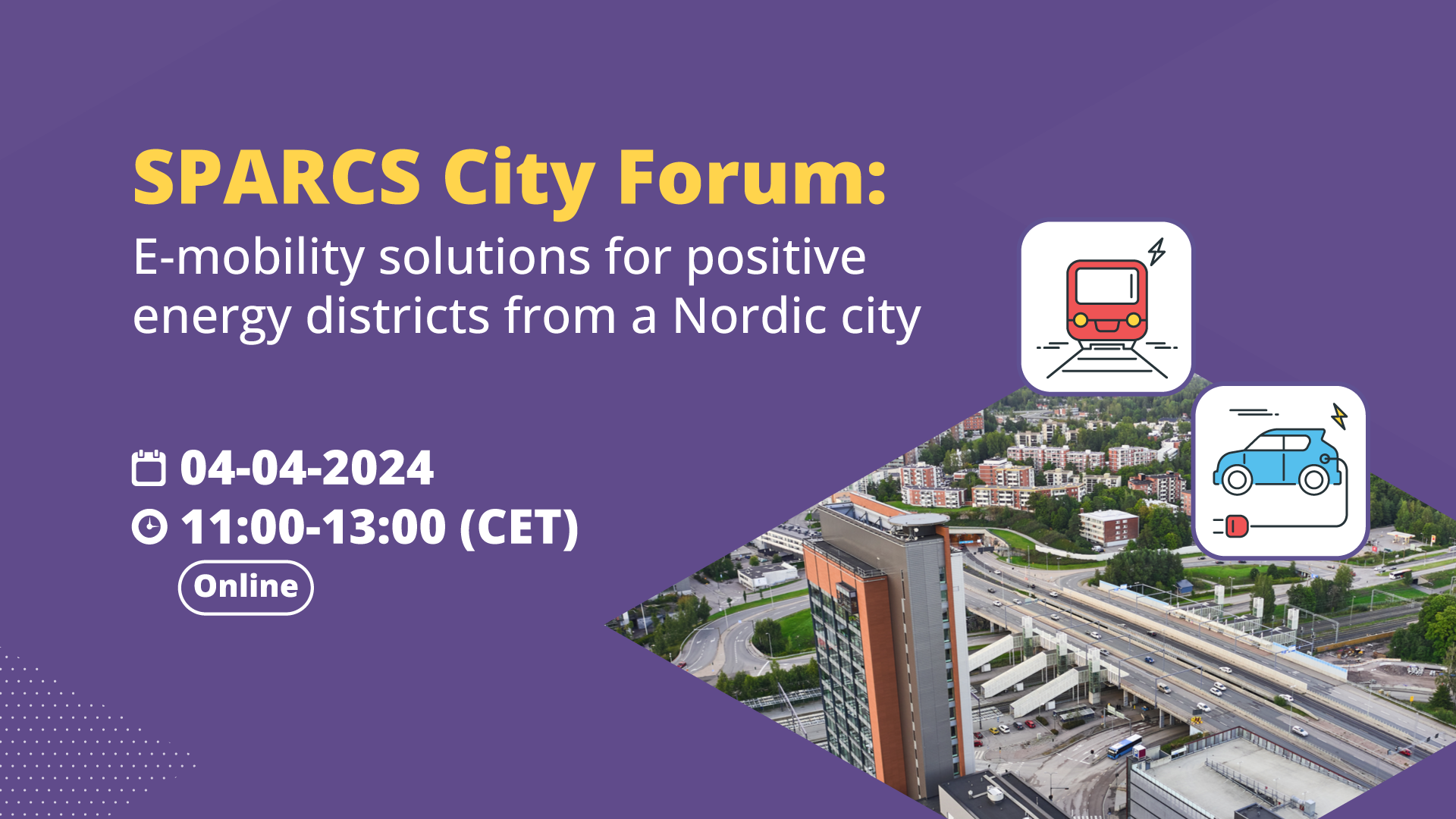SPARCS webinar: E-mobility solutions for positive energy districts from a Nordic city
On April 4, 2024, the SPARCS City Forum held an insightful webinar titled “Electric Mobility Solutions for Positive Energy Districts from a Nordic city,” drawing on the transformative experiences from Espoo, Finland. As European cities navigate the path to climate and carbon neutrality, the integration of electric mobility (e-mobility) into urban planning emerges as a key strategy in redefining sustainable urban living.
From the City of Espoo, Jani Tartia offered an enlightening overview of the municipality’s ambitious strategies for e-mobility adoption. Jani delved deeply into Espoo’s proactive measures, such as developing an extensive charging infrastructure and providing incentives for electric vehicle (EV) users. These initiatives underscore Espoo’s dedication to creating a conducive environment for e-mobility, reflecting a commitment to sustainability and innovation in urban mobility.
Mari Hukkalainen from VTT enriched the discussion with her expertise on the intersection of technology and policy in advancing towards climate-neutral cities. Her insights into the importance of data-driven decision-making and the utilization of pilot projects for refining e-mobility solutions highlighted the critical balance between innovation and regulation. Mari’s presentation showcased the actionable outcomes of theoretical concepts within the SPARCS project, illustrating the pathway towards sustainable urban ecosystems.
Sanna Haesae from Siemens showed the crucial role of smart energy systems in seamlessly integrating e-mobility solutions into the urban grid. Exploring the concept of smart charging, Sanna demonstrated how EVs could transcend their role as mere transportation tools to become integral components of a city’s energy system. This perspective on e-mobility as a cornerstone of smart, sustainable energy systems underscored the transformative potential of integrating transportation and energy sectors.
Jussi Innala from Plugit Finland provided a practical viewpoint on the challenges and triumphs associated with deploying EV charging infrastructure. Drawing from Plugit Finland’s extensive experience, Jussi’s insights into the logistics, community engagement, and technological considerations of establishing public charging stations offered valuable lessons. This real-world perspective bridged theory and practice, highlighting the tangible steps towards e-mobility implementation.
Lastly, Mikaela Ranta from VTT presented a forward-looking analysis on the simulation of e-mobility hub charging demand. Leveraging advanced simulation techniques, Mikaela opened a window into the future of urban mobility planning, where predictive analytics could optimize the placement and operation of charging infrastructure. This discussion emphasized the significance of anticipatory planning in ensuring the scalability and success of e-mobility solutions, spotlighting the innovative research within the SPARCS project.
You can watch the recording of the webinar below:

